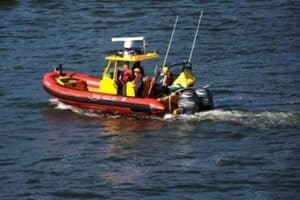If we don’t respect our oceans, and our planet, we are only harming ourselves.

While KwaZulu-Natal has taken a bit of stick – including from us – because some of its beaches did not meet minimum water quality standards, it now turns out that the supposed squeaky clean Western Cape – the bastion of effective governance, thanks to the ruling DA, so the story goes – may not be as pure as it likes to think it is.
An independent study has revealed significant contamination levels at several Cape Town beaches, despite assurances from the city that its beaches have met all water quality standards.
Project Blue, conducted during November and December, investigated the seawater quality at beaches along the Table Bay and False Bay coasts.
It found evidence of serious bacterial contamination at several beaches, including those which had been granted “Blue Flag” quality status by the Wildlife and Environmental Society of SA (Wessa).
ALSO READ: Blue Flag beaches in SA: Where can you find the highest quality sand and surf?
The Strand was identified as a particularly polluted area, with the Soet River carrying untreated waste into the ocean.
The report found this stretch of coastline as “grossly polluted”, highlighting significant health and safety risks for beachgoers.
Camps Bay Beach and Clifton 4th Beach, other popular destinations, also showed “dangerously high bacterial contamination” when sampled on different days.
“The outdated belief that the ocean can simply dilute large quantities of sewage without causing environmental harm has been debunked,” the report stated.
Malfunctioning sewage treatment plants, leaking sewer systems that discharge into rivers and stormwater systems, and marine outfalls designed to release untreated waste directly into the ocean all contributed to the contamination, it added.
ALSO READ: New Year’s dip: Some beaches and routes you may want to avoid
Caroline Marx, director of the environmental non-profit organisation RethinkTheStink, called the findings “alarming”.
It is disturbing that, in this day and age, sewage can still be released into the sea in the belief that nature will heal itself.
If we don’t respect our oceans, and our planet, we are only harming ourselves.
Support Local Journalism
Add The Citizen as a Preferred Source on Google and follow us on Google News to see more of our trusted reporting in Google News and Top Stories.






